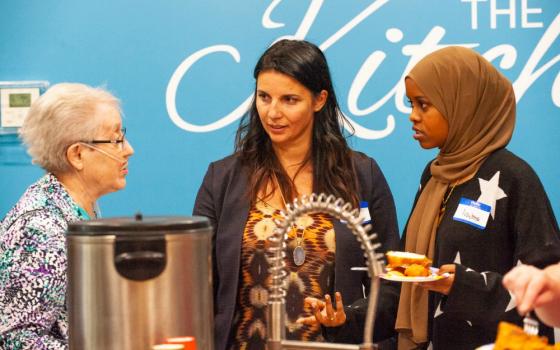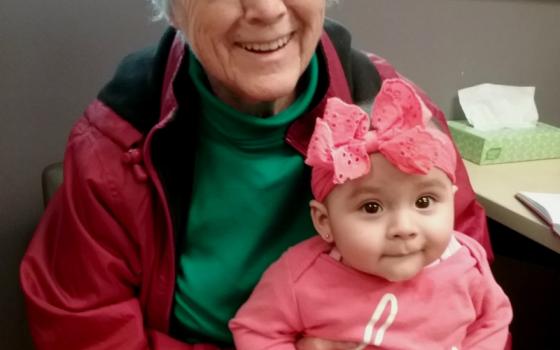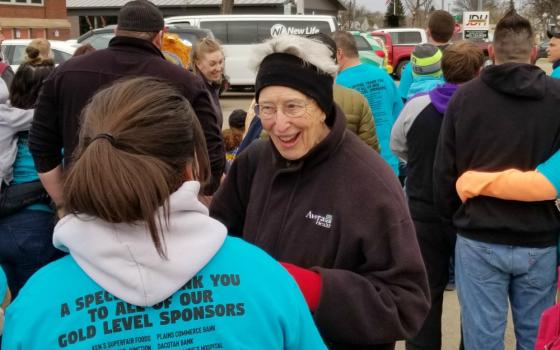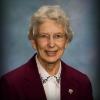Recently, I met a friend for a morning cup of sweet tea in a Somali restaurant. It was a treasured visit, but what made it remarkable was the place: a Somali restaurant, owned by a Somali family in Aberdeen, South Dakota. Why is this remarkable? Aberdeen is a small, sleepy rural farming town of 30,000 people. It has never boasted a taste for diversity of culture or color, and the idea of Somalis living here and owning a business was almost unthinkable.
It started becoming "thinkable" in 2002, when our city, the third largest in the state, was approached by developers wanting to establish a turkey-processing plant in the area. The plan was for a large operation that would hire Karen refugees from Myanmar, because Aberdeen could not provide the larger workforce needed.
Initial responses of the townspeople to this idea were generally negative. Resistance to "foreigners" and rumblings of fear that this would change the culture of the town and even that of the whole northeast area of South Dakota — this became a continuing mantra. Pushback was so substantial that the developers took their plans and opened the plant elsewhere.
A few years later, another group of developers came up with the idea of a beef-processing plant. Their proposed workers would be Hispanic and Somali immigrants. Again, the town's response was negative. This time, however, business owners, city developers and church groups banded together and decided that if Aberdeen was to grow, it was time for the town to move into the 21st century, and education in cultural diversity would be needed to help this transition.
An informal group of participants from the three sectors planned several educational forums. The first, in 2006, was given by two Sisters of the Presentation of the Blessed Virgin Mary, Sheila Schnell and Janet Horstman, both experienced in working with Hispanic immigrants/refugees in Mexico and in Sioux Falls, South Dakota.
Interest began to grow and in 2008 the informal Aberdeen Area Diversity Committee became a nonprofit 501(c)(3) organization. The group continued to work for better cultural understanding, in spite of much controversy and the turmoil over the establishment — and then the demise — of the beef-processing plant.
The plant did reopen in 2014 with Hispanic, Karen and Somali secondary refugee workers, some coming from other small towns in the area. However, controversy continued over these families actually making their homes in Aberdeen. Dissatisfaction escalated to the point that some of the most disgruntled citizens brought in anti-Muslim speakers to fire up the fear that non-Christians were coming to "take over" our rural culture.
During this time, the Aberdeen Area Diversity Committee was virtually silent, until February 2016. A local lawyer, Carlyle Richards — concerned about the plight of Syrian refugees — sent letters to local churches asking if they would be willing to sponsor refugee families. The pastor of Zion Lutheran Church, the Rev. Marcia Sylvester, quickly called a public meeting to reactivate the committee's work.
Local churches and the Sisters of the Presentation of the Blessed Virgin Mary joined with Lutheran Social Services (the official refugee resettlement organization in South Dakota) to become the Aberdeen Area Diversity Coalition. In December 2016, it adapted and adopted the nonprofit status of the original committee and took on a new purpose: "Creatively Connecting the Aberdeen Community's Diverse Cultures."
The coalition is still determined to create a community of diversity. It organizes "meet and greet" gatherings with the Hispanic, Somali and Karen newcomers to introduce and welcome them into the community. It developed Ride Line (local van transit) applications in Spanish, Karen and Somali, and works with the Aberdeen Police Department and two local colleges to further mutual understanding among people of the different cultures. The coalition partners with the local library to provide easily accessed interpretive services for people of many languages.
It also brought the display of Green Card Voices to Aberdeen from St. Cloud, Minnesota. Another event, funded by a Bush Foundation grant, was the participation of 30 representatives from Aberdeen to the first BushCon gathering in Minneapolis in the fall of 2018. BushCon is a networking event that builds stronger and more meaningful connections among leaders in Minnesota, North Dakota, South Dakota and the 23 Native American nations that share the same geography.
Currently, the coalition is sponsoring five performances in Aberdeen of the Minneapolis Pillsbury Theatre production of "Breaking Ice," a play that focuses on acknowledging and breaking down cultural barriers.
We hear a lot about cultural diversity issues in big cities, but rural areas also struggle with them. Even before this citywide evolution of cultural inclusion began in 2002, our sisters have been involved in working to bridge cultural divisions in these rural areas. Motivated by our international spiritual mission and commitment to justice and compassion, we opened a Native American branch of our Presentation College on a nearby reservation, and started an outreach ministry to the first Hispanic immigrants moving into Aberdeen in the 1990s.
The struggle continues and it has been both frustrating and sad for me to encounter the resistance of "my" civic, social and even church-related neighbors who are afraid of diversity.
However, I am encouraged, hopeful and firm in my belief that the efforts of the Aberdeen Area Diversity Coalition are having a positive impact on our city and region. I am especially proud of the passion and enthusiasm of many individuals and more than 30 organizations who are active in this and a variety of justice efforts for our city.
[Kathleen Bierne is a Presentation Sister in Aberdeen, South Dakota. Her ministries have been in education, service as congregational vice president, and currently on several governing boards for their Avera Health system. She also represents the congregation as a badged lobbyist at the state legislature, focusing on issues that impact the vulnerable, immigrants, refugees and education/health care.]



